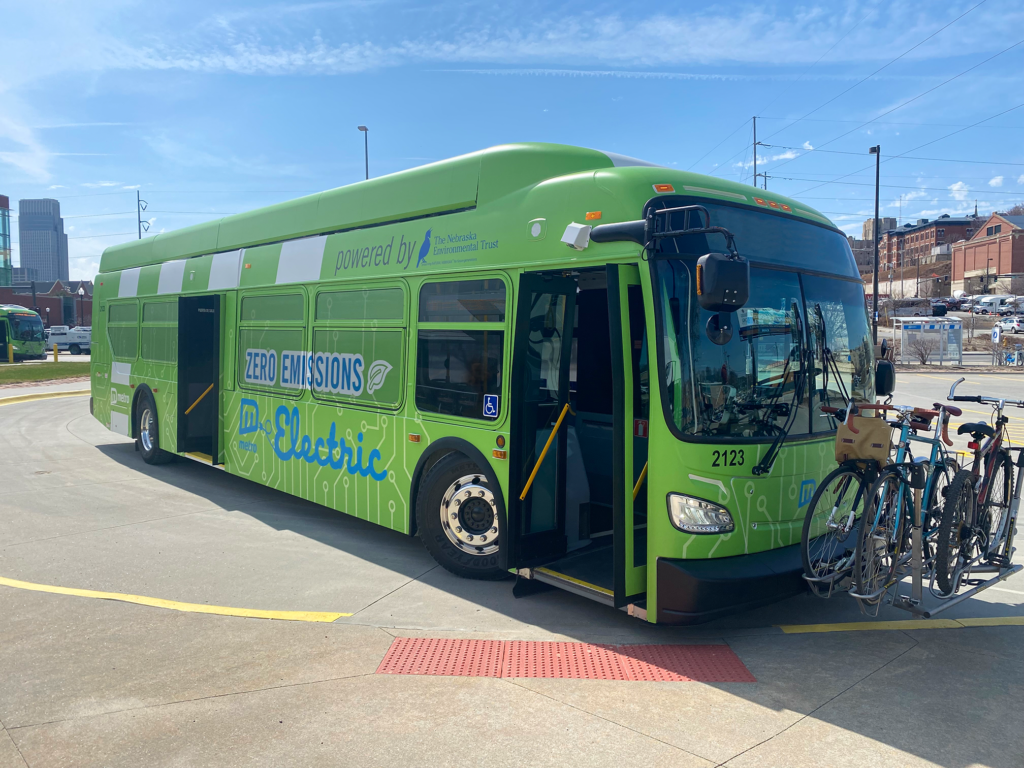In The News
Omaha Metro charges forward with first electric buses
Published by Mass Transit Magazine

Omaha Metro Transit has welcomed the first fully electric buses in the region and will make their debut on the streets of Omaha, Neb., this week.
These zero-emission vehicles are made possible in part by support from the Nebraska Environmental Trust and a competitive federal grant. This partnership also provides funding for tools and training, which will help equip Omaha Metro to acquire more electric vehicles in the future.
Metro’s electric buses were manufactured in the United States by New Flyer. The battery-powered buses use a direct-drive engine that doesn’t require a transmission or a tailpipe. Each 40-foot electric bus can reduce up to 135 metric tons of greenhouse gases per year compared to a clean diesel bus and replace thousands of single-occupancy car trips on our roads, says Omaha Metro.
At the March board meeting, a resolution was passed in support of climate change mitigation, adaptation and resilience. This resolution emphasized the steps Omaha Metro has already taken, as well as directing staff to develop a plan to achieve net-zero emissions.
“We’re doing our part to ensure a livable planet and climate for generations to come,” said Omaha Metro Board Member Daniel Lawse. “We’re diversifying our fleet, investing in sustainability and pursuing climate-positive operations to elevate our environmental and community impact.”
The fuel source isn’t the only thing different about these buses – they are also equipped with a new, upgraded air purification system, which sanitizes the air and surfaces continuously while the bus is running.
“We’re thrilled to bring a new type of bus to Omaha, featuring a cleaner and quieter ride that benefits our riders, as well as the broader community,” said Omaha Metro CEO Lauren Cencic. “These new buses will allow us to test out innovative new features that can be expanded upon in the future.”
In addition to the new air cleaning system, Omaha Metro is piloting a new bike rack with capacity for up to three bikes. Current front racks on buses can hold two bikes at a time, and passengers can bring their bike for free with any bus trip.
Charging of the electric buses will take place in the Omaha Metro garage with newly installed high-capacity chargers, which will fully recharge a bus in approximately three to five hours. Omaha Metro will be testing the full range of these vehicles, which is expected to vary depending on factors such as weather, road grades and surrounding traffic.
The electric buses began service March 29.
Related
In The News
Large New York Order for New Flyer
Read More
In The News
NFI subsidiary New Flyer awarded two contracts from New York for up to 2,090 Xcelsior® transit buses
Read More
In The News
New Flyer sells +200 e-buses in New York (with options for further 1,200)
Read More